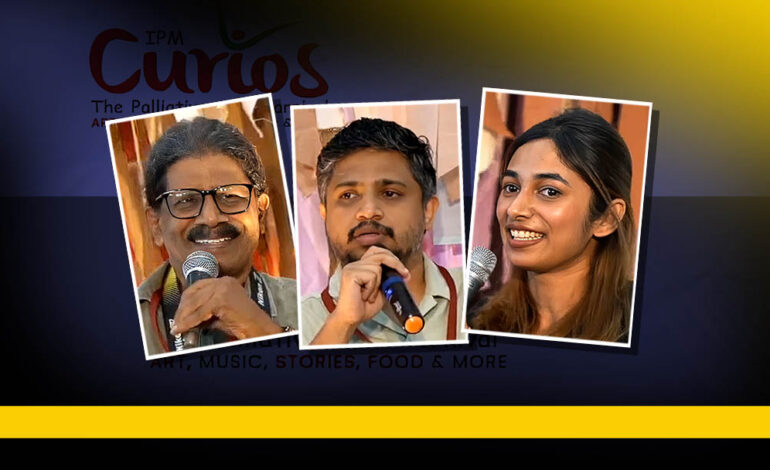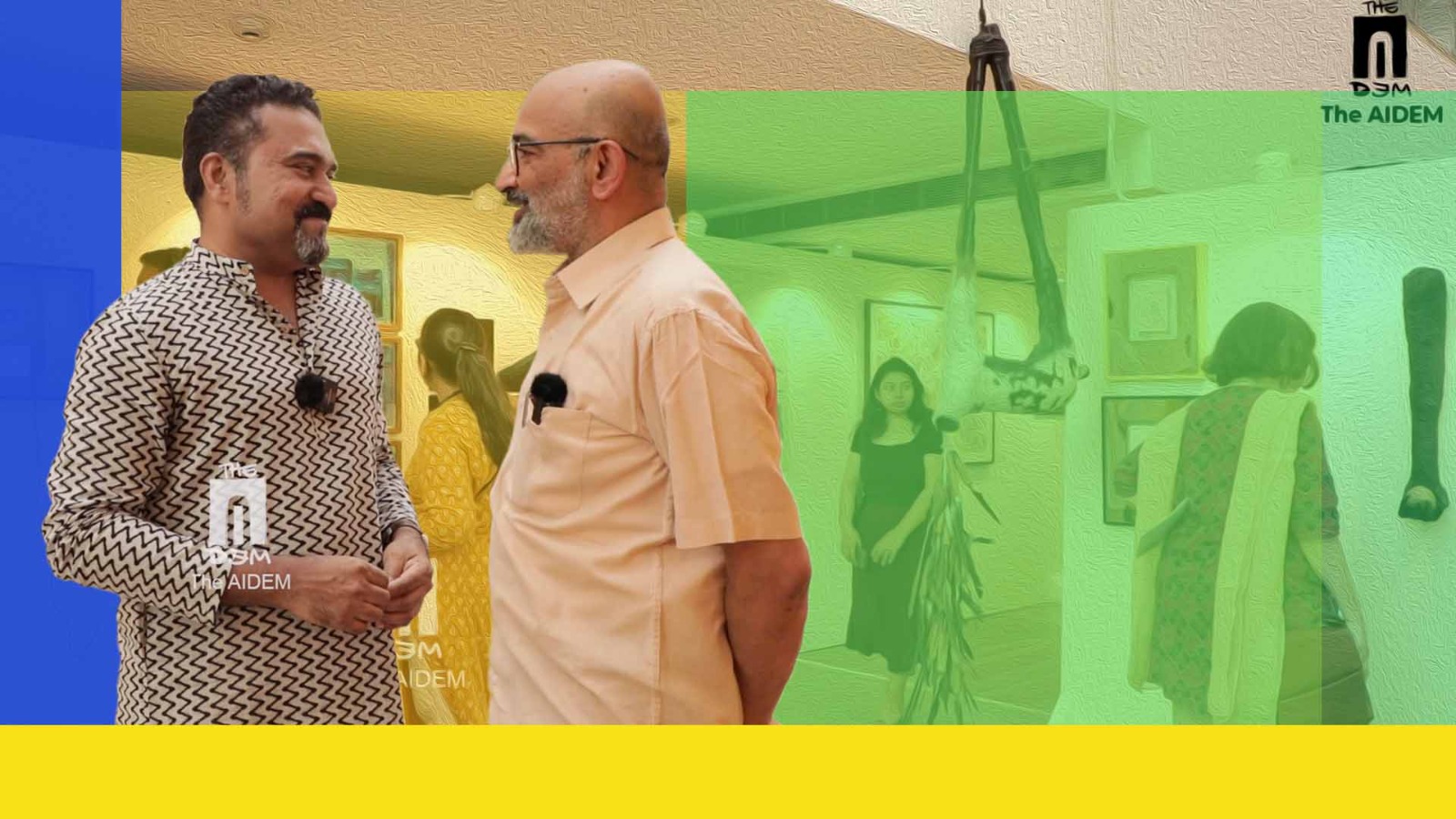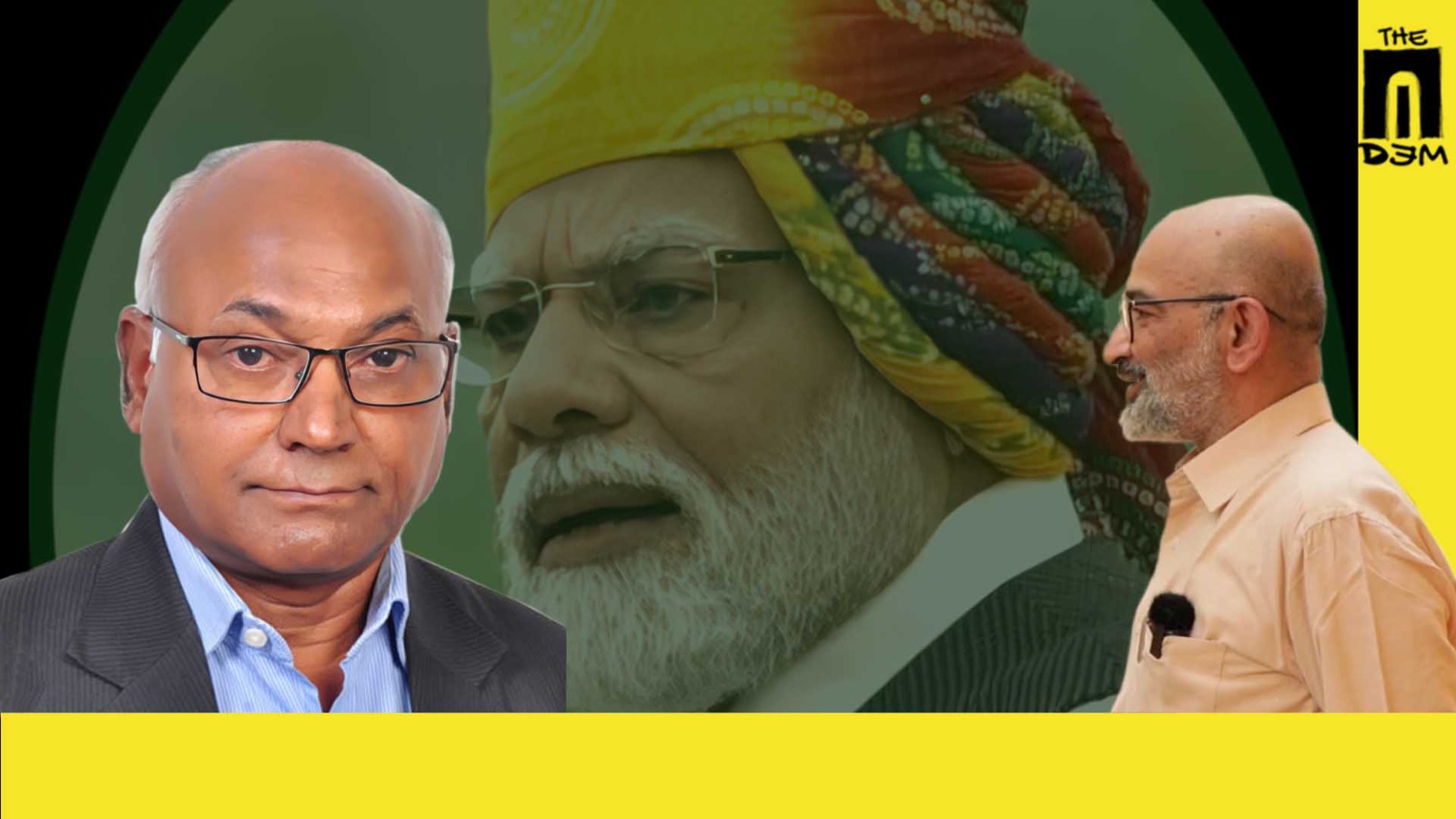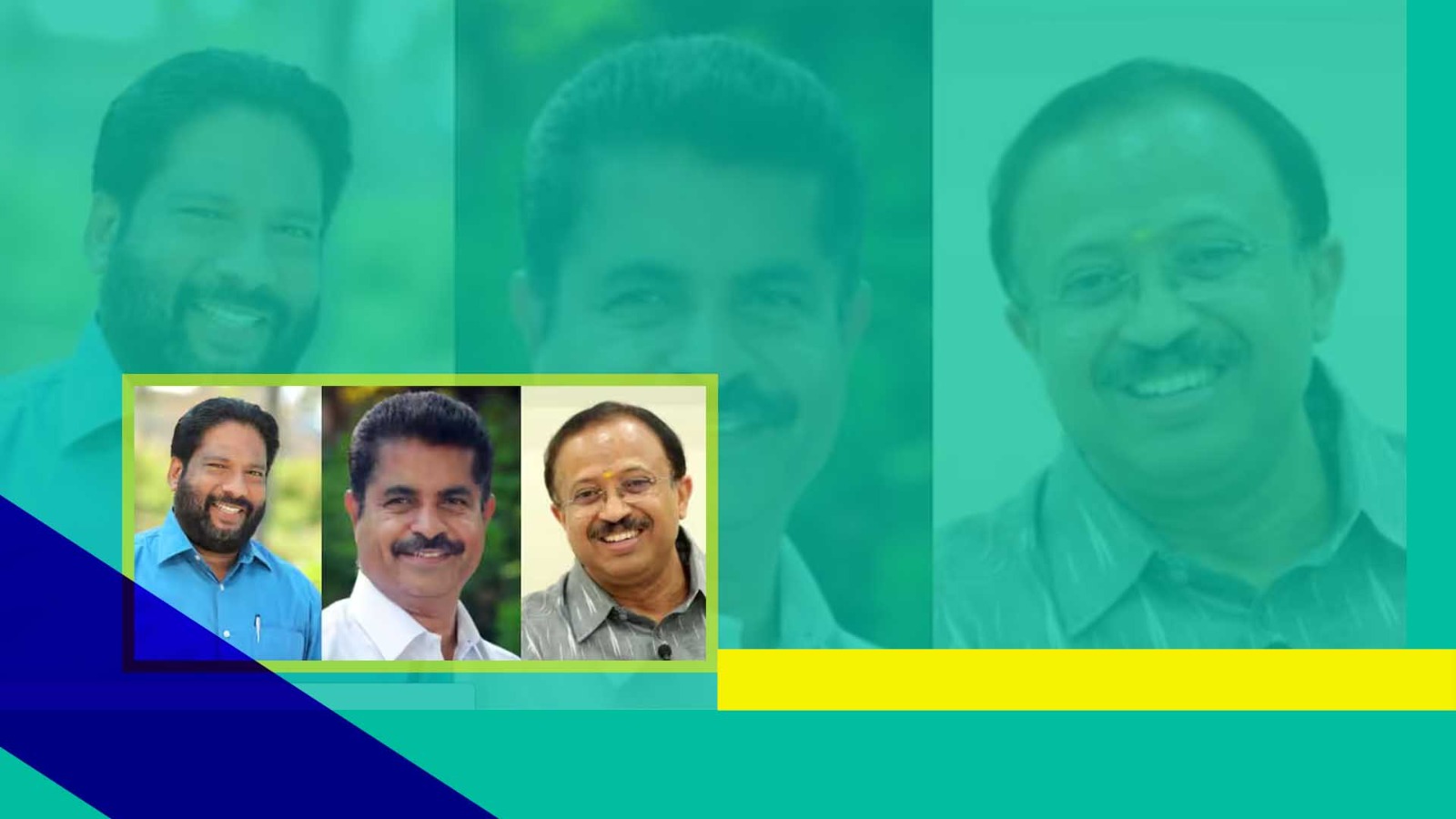“ALVIDA PANKAJ”
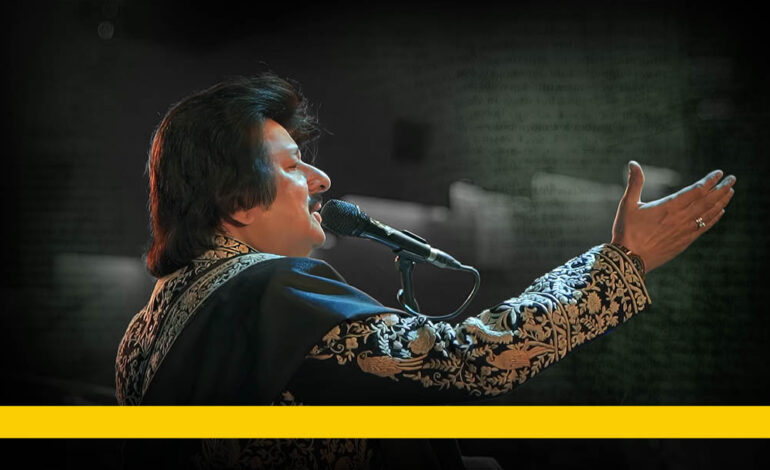
It is nearly a fortnight since music lovers, especially ghazal lovers, bid adieu with a heavy heart to the legendary ghazal maestro, Pankaj Udhas. He is no longer physically present in our midst, but our memories of the man and his music are never going to leave us. I was fortunate to have spent some time with him, both as a music lover and as a personal associate at different levels. Looking back at Pankaj’s personal and creative lives, I can only say that the young man, who originally came from Gujarat and ventured into the world of Ghazals, has left an indelible mark on Indian music with his soulful voice. With his passing, a significant chapter in Indian ghazal has come to a close.
Chithi Aayee Hai
Pankaj Udhas struck a chord with audiences both overseas and in India with his iconic song “Chithi Aayee Hai” from the film “Naam” This heartfelt composition resonated deeply with individuals living abroad, capturing the emotions of those yearning for their families from afar. Its universal appeal touched the hearts of listeners, making it an instant hit and cementing Pankaj Udhas’ position as a renowned singer who could beautifully capture and convey the essence of longing and separation through music.
Indeed, the lyrics of “Chithi Aayee Hai” beautifully capture the joy experienced by migrants upon receiving a letter from their homeland. The letter becomes a conduit, carrying the essence of the motherland, evoking a profound sense of longing and sparking a yearning to return. In one of his Interviews, Pankaj Udhas was quoted as saying “I think Chithi Aayee hai has a universal appeal. We live in the world of migrants, where the diaspora, almost every individual who belongs to this human collective, is afflicted by a longing for home. Those who have migrated from small towns and villages to metros like Delhi and Mumbai always relate to this Anand Bakshi – penned song”. While the song was written in this background, it had an universal appeal, as Indians by late 1980s and early 1990s had migrated to different parts of the world. And for each one of these migrants the song had a special significance. It connected them to their homeland, especially India’s rural belt, its many melas and festivals.
Pankaj’s Ghazal and influence of URDU Language
Another song that is worth mentioning is “Thodi Thodi Piya Karo” which is a profound ghazal that showcases Pankaj Udhas’ intimate understanding of melancholy. It has left an indelible mark on both his peers and listeners, resonating with its timeless appeal. This song has sparked discussions regarding Pankaj’s use of the word “sharaab,” which some have understood literally as alcohol.
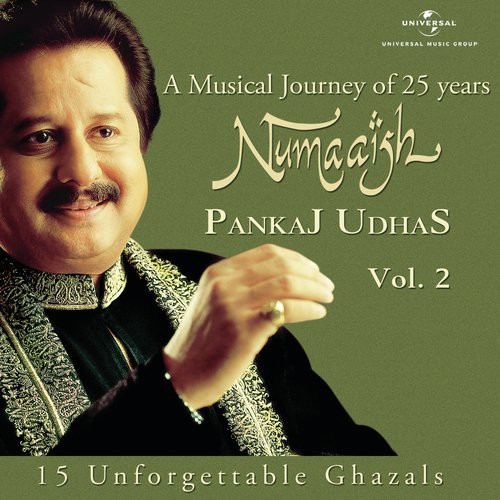
However, in a 2017 interview, Pankaj clarified that it should be perceived metaphorically. He emphasised that classical poets like Mir Taqi Mir, Mirza Ghalib, and Omar Khayyam used “sharaab” as a symbol, representing the intoxication imparted by various aspects of life such as love, wealth, and beauty. Pankaj suggests that becoming too engrossed in these intoxicants can hinder one’s journey toward enlightenment. This insight adds layers of depth to “Thodi Thodi Piya Karo” and further highlights Pankaj Udhas’ profound understanding of emotions and his ability to convey them through his evocative music.
In another interview, the interviewer asked Pankaj “Ghazals are often sung in Urdu. Has it become a victim of politics? For which he answered as “Urdu was born and grew up in India. It is our language and can’t be called the language of a particular community alone. I became a ghazal singer because I would hear Begum Akhtar on radio and secretly dream of becoming a ghazal singer one day. A ‘maulvi sahab’ would come to our place to teach Urdu to my elder brother Manhar Udhas. The ‘maulvi sahab’ saw my curiosity to learn Urdu and taught me this beautiful language which symbolises India’s composite culture. My knowledge of Urdu has helped me immensely in my career just as it has helped others in the creative fields of films, music and television. Bollywood has sustained Urdu and I don’t think Urdu will ever die”.
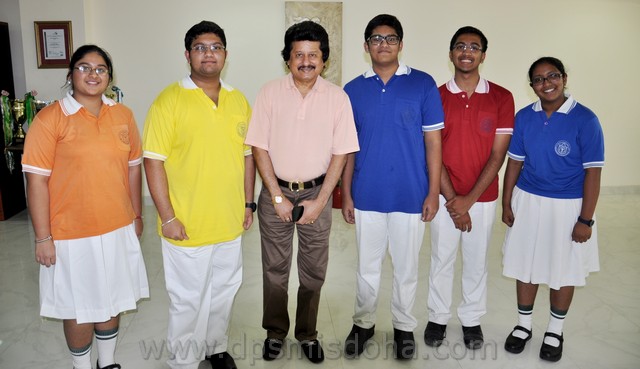
Pankaj Udhas’ ghazals possessed a mesmerising power, In his renowned song, “Chandi Jaisa Rang Hai Tera,“ Pankaj Udhas openly admitted of utilising the opening couplet of this ghazal from one of Pakistan’s famous Urdu Poet Qateel Shifai’s ghazal without obtaining permission. However, following the song’s phenomenal success, Pankaj Udhas humbly informed Qateel Shifai about his adaptation. Much to his surprise Qateel Shifai expressed a deep sense of honour rather than objection, enhancing the bond between the two artists.. In the words of Pankaj Udhas himself, “I have never been to Pakistan but have admirers there. When I told Qateel Sahab that I have used his couplets for my song without his permission, to my surprise, he didn’t take offence. Music and Art are above politics and beyond boundaries. I don’t say that boundaries between countries should be removed, but let there be exchange of music and art”.
Pankaj Udhas The Philanthropist
In 2006, Pankaj Udhas joined forces with renowned Singers Jagajit Singh, Anup Jalota, and Talat Aziz to launch a groundbreaking initiative called “Khazana – Festival of Ghazals”. This visionary project not only showcased the sublime beauty of this art form but also became a platform for aspiring talented young singers to display their abilities. Apart from its artistic significance, Khazana holds immense social value. The proceeds from the festival are dedicated to supporting cancer and thalassemia patients, making it a powerful force for change and compassion.
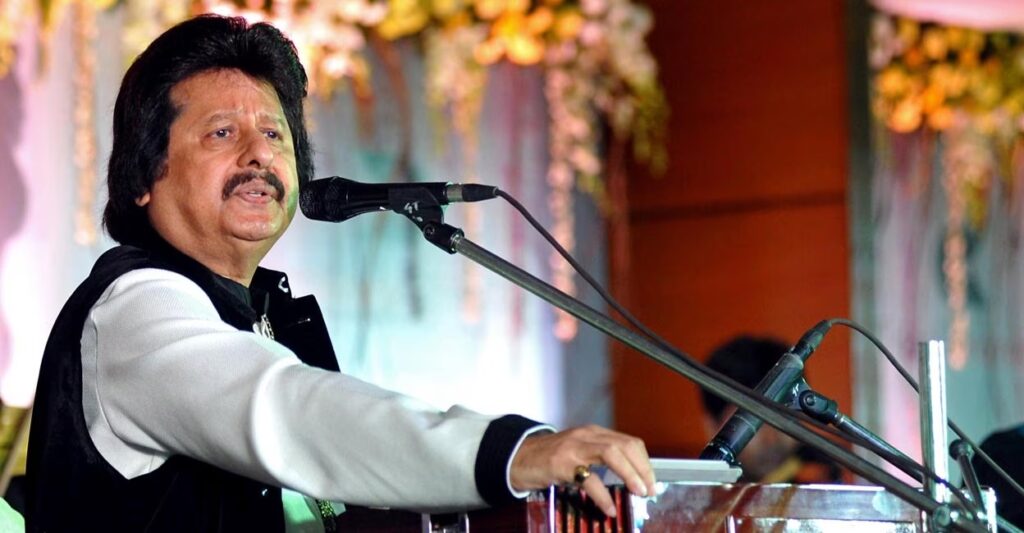
Pankaj Udhas stands among the few super-successful artists who have ventured beyond their stage performances and television appearances to create initiatives that can truly make a difference in society. Through Khazana, Pankaj Udhas and other ghazal maestros have crafted an enduring legacy that extends well beyond their individual contributions. By nurturing young talent and channelling their artistry towards a noble cause, they have enhanced the cultural landscape while actively contributing to the welfare of those in need. Khazana’s powerful combination of art, philanthropy, and kinship continues to inspire and uplift countless lives.
Our Meetings
Personally, my journey with Pankaj Udhas began in 1988 in Kozhikode, where his performance went far beyond expectations, breaking language barriers and uniting the audience through the power of music. Our relationship continued through the years that followed, with memorable encounters in Mumbai and Dubai.
Still, the mesmerising effect of that first encounter continues to linger. Certainly, I am not the only one in that audience who remembers the magic of that night. It was as though those three and a half hours that day flew by seemingly in a mere instant, but it also left a spellbinding effect that lasted for ages. The audience was completely engrossed, hanging on every word, applauding with fervour after each verse, and tapping their feet in rhythmic synchrony. Cheering erupted, filling the air, at the end of every line, a testament to the understanding and appreciation they had for the profound emotions being conveyed.
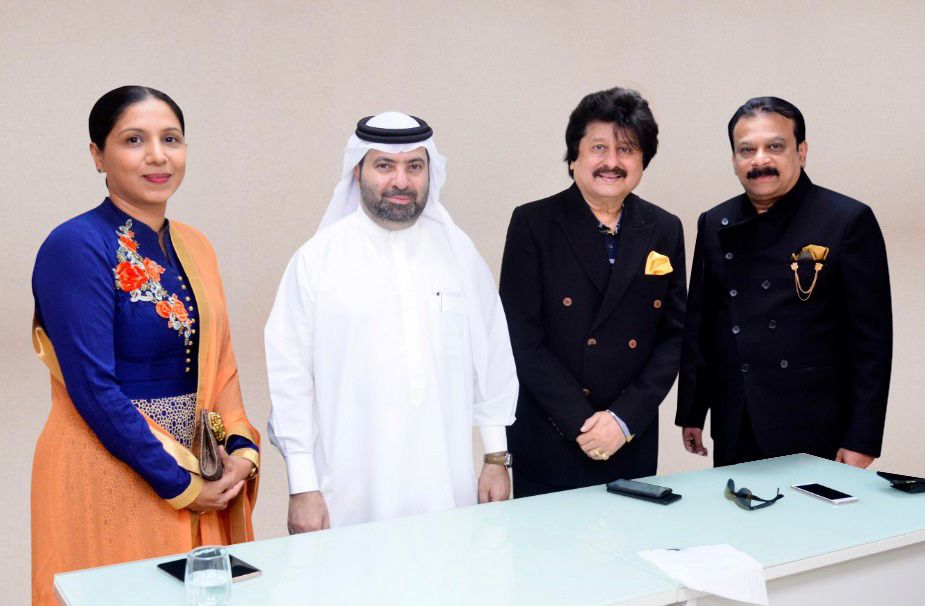
The experience left Pankaj humbled and in awe of the power of music and poetry to transcend linguistic boundaries. At the end of the show, I had a meeting with him along with the organising committee members at the Malabar Palace Hotel in Kozhikode and during the conversation he said “I was little apprehensive of the crowd, as prior to the event, I was told that the audience in Kerala might struggle to grasp the nuances of ghazals and their profound meanings. However, throughout the show I never felt that I was doing the show in Kerala…”
Pankaj Udhas graced Kozhikode once more in January 2018, marking a significant milestone in his career as it had been 30 years since his previous visit. The show radiated nostalgia, recreated the magic of his music that had captivated the audience decades ago. I could not attend this second show at Kozhikode, but had a face-to-face with Pankaj Udhas in the same year in August 2018 during a private show in Dubai. His last visit to Dubai was in 2022, when Pankaj Udhas graced the stage in Dubai once more as part of the Eid in Dubai celebrations. His last performance in Dubai in 2022 during Eid celebrations reiterated the timeless allure of his music.
Pankaj Udhas, the master storyteller, possessed a unique gift to transport us to realms of pure emotion through his mesmerising music. His soulful renditions touched the deepest corners of our hearts, leaving an indelible impact that will be cherished for generations to come. As we bid farewell to the maestro, let us celebrate the treasure trove of melodies he bestowed upon us. There were so many great ghazal singers as his peers but when Pankaj-ji took to the stage and started singing, there was a different sort creative current that engulfed the audience and the listeners sat rapt. I join the world in mourning one of our greatest musical stalwarts. ‘Jis Rasthey Pe Thoo Guzarey woh phoolon se bhar jaenTere pair ke komal aahat sothey bag jagaye’…



